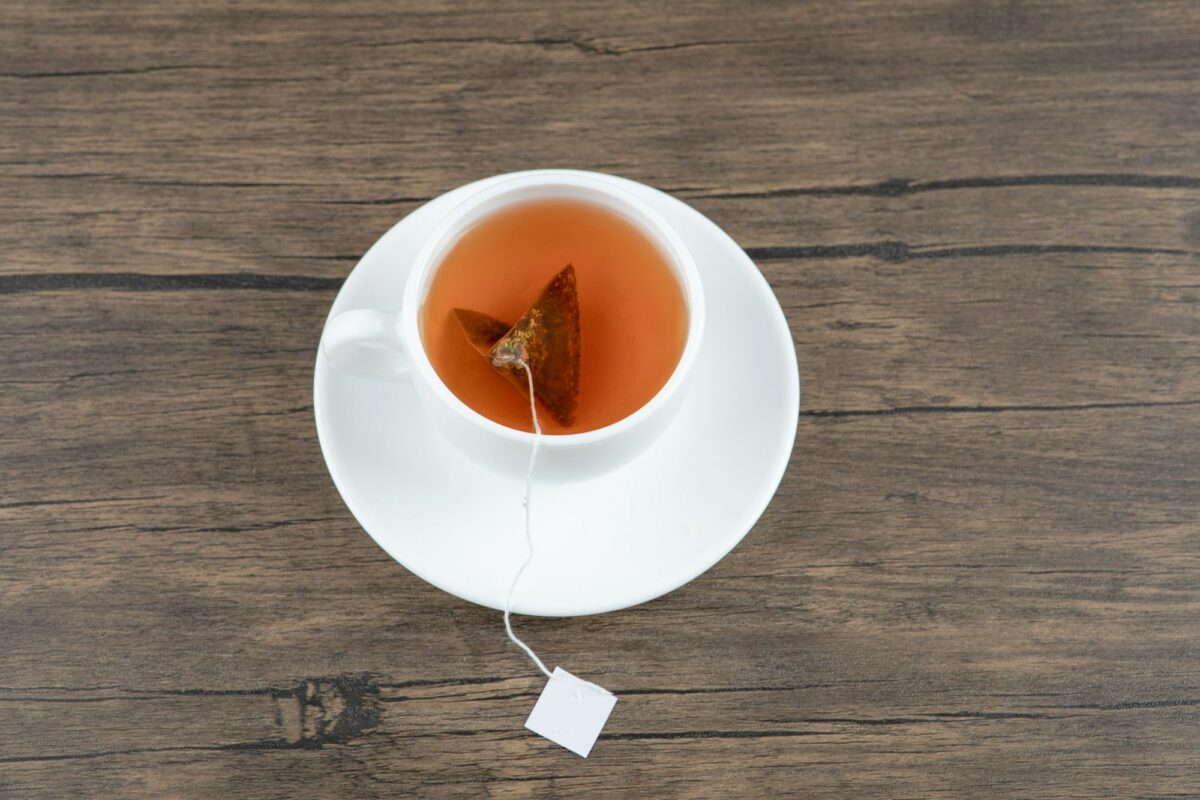Tea Guide
Your Tea Bags May Be Releasing Billions of Microplastics Into Your Cup
Recent research has uncovered a concerning issue: certain tea bags may release billions of microplastic particles into your drink when brewed. Published in Chemosphere, the study highlights how everyday tea rituals could inadvertently expose consumers to these tiny plastic fragments, raising questions about their impact on health.
Billions of Plastic Particles Per Cup
The study investigated tea bags made from polypropylene, nylon, and cellulose—materials widely used in tea bag production. Polypropylene tea bags were the worst offenders, releasing over 1 billion microplastic particles per milliliter of tea. Nylon tea bags shed millions of particles, while paper-based cellulose tea bags also contributed significantly to the issue, leaching around 135 million particles per milliliter.
These findings reveal a largely unnoticed but pervasive source of plastic exposure in daily life. Dr. Alba García-Rodríguez, a lead researcher from the Universitat Autònoma de Barcelona, emphasized, “We’re surrounded by plastic, and it’s finding its way into what we consume.”
How Microplastics Interact With the Human Body
To further understand the risks, researchers exposed human intestinal cells to the extracted microplastic particles. The results were troubling—cells absorbed the particles, and some even reached their nuclei, where genetic material is stored.
John Meeker, ScD, from the University of Michigan, expressed concern about the potential health implications. “The ability of these particles to penetrate cells raises important questions about their effects on tissues and organs,” he noted.
While microplastics are known to carry harmful chemicals, such as endocrine disruptors, their exact impact on human health remains uncertain. Experts caution against jumping to conclusions but agree on the need for further investigation into their long-term effects.
A Growing Body of Evidence
The findings are not isolated. Previous studies, including one from 2019, revealed that nylon and polyethylene tea bags could release billions of microplastic particles into a single cup of tea. Even biodegradable tea bags are not entirely safe; a 2023 study by García-Rodríguez’s team found that plant-based biodegradable plastics released around 1 million nanoplastic particles per tea bag.
The study highlights that high brewing temperatures and simple actions like stirring contribute to the release of microplastics from tea bags, making the issue unavoidable with certain materials.
How to Reduce Microplastic Exposure
Fortunately, there are steps tea drinkers can take to minimize their exposure to microplastics. Experts recommend switching to loose-leaf tea and using stainless steel infusers or reusable filters, which do not release plastic particles.
While biodegradable plastics are marketed as eco-friendly alternatives, they may not be as safe as they seem. García-Rodríguez cautioned that these materials can break down into nanoplastics more easily, potentially increasing exposure.
To further reduce plastic exposure, she advises using glass food storage containers, avoiding plastic water bottles, and choosing unpackaged produce whenever possible.
Why Regulation Is Key
Plastics have undoubtedly played a vital role in food safety and storage, but their widespread use requires better regulation. “We’re not here to vilify plastics,” García-Rodríguez explained. “But we must address the massive amounts of plastic exposure we face daily.”
As scientists continue to study microplastics and their effects, consumers can take small steps to reduce exposure while enjoying their tea. By choosing plastic-free alternatives, we can make a meaningful difference for both our health and the environment.
That’s why Thunderbolt Tea Only sells Loose leaf Teas
As New research indicates that traditional tea bags may release billions of microplastics into your cup during brewing. This finding confirms our long-held concern about the potential health risks associated with immersing plastic in hot water. To ensure you enjoy pure and healthy tea, Thunderbolt Tea is dedicated to providing you with the highest quality LOOSE LEAF TEAS, sourced directly from their origins – no tea bags. Shop with confidence, knowing that our teas are completely free from microplastics.


